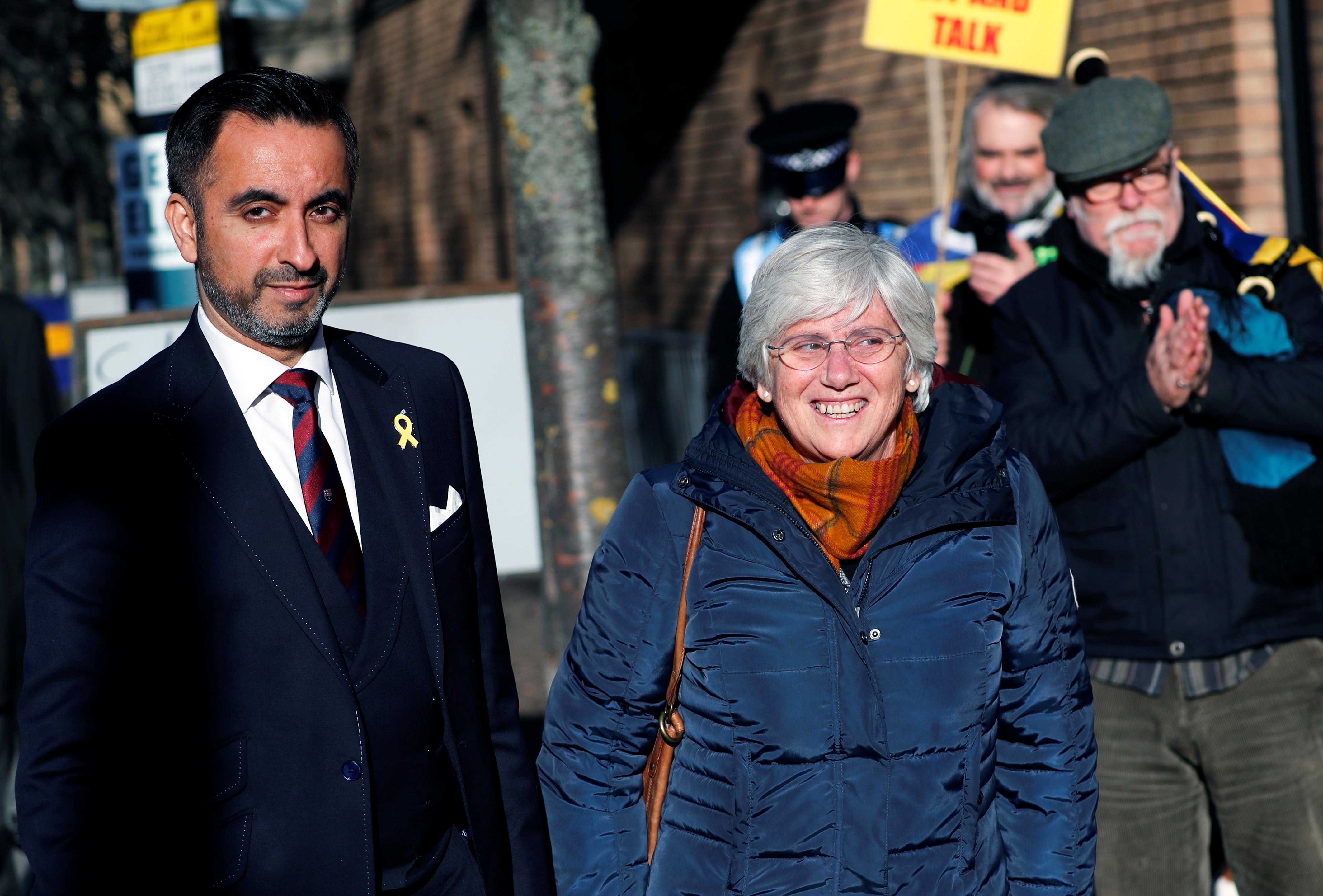The crime of sedition has "no place in a mature democracy". This is the assertion of Edinburgh's The Scotsman newspaper in a leader article following Thursday's decision by a Scottish court to free Catalan pro-independence politician Clara Ponsatí on bail, without imposing any restrictions on her rights to travel. Ponsatí's extradition is sought by Spain for a crime of sedition, the same offence for which nine of her fellow Catalan pro-independence leaders were sentenced to jail by Spain's Supreme Court in October.
In the article, The Scotsman argues that Spain's attempt to extradite Ponsatí "raises profound questions." According to the newspaper, Scots should be glad to live in a country where sedition, defined by the Encyclopaedia Britannica as "organising or encouraging opposition to government in a manner that falls short of the more dangerous offences constituting treason", is no longer an offence.
Instead in the UK, adds the leader piece, "those who campaign against the state are only prosecuted if they commit criminal acts like violence or intimidation."
The newspaper cites British author Will Self, who in 2010 argued, on sedition, that "a mature democracy, with a tradition of open government and freedom of speech, has no need of such ancient Star Chamber inquisitions." His comments focus on the offence of "seditious libel", removed from the law books in Scotland, England and Wales in the last decade.
It should be noted, though, that in Spanish law, the crime of sedition is defined as requiring a "public and tumultuous uprising" against the law or the authorities, unlike its more frequent use in English in relation to speech or writing that encourages such actions - exemplified by the now-defunct seditious libel law mentioned by Self.
'Sedition' in Amnesty report
The Spanish justice system's interpretation of "sedition" is also criticised in Amnesty International's imminent report on the Supreme Court trial of the Catalan pro-independence leaders. The definition of the crime in Spanish law is "imprecise" and the court's interpretation of this definition was "too general and dangerous", an Amnesty spokesperson has commented in reference to the report, which will be presented at a press conference this coming Tuesday.
Meanwhile, another exiled former member of the 2017 Catalan government, Toni Comín - also facing an extradition demand for sedition - commented in a tweet that "you couldn't sum it up better" than The Scotsman's headline.
La sedició no té cabuda en una democràcia madura... No es podria resumir millor.
— Toni Comín (@toni_comin) 16 de novembre de 2019
"Why ‘sedition’ has no place in a mature democracy" – top leader https://t.co/Fzph4IlvbQ

